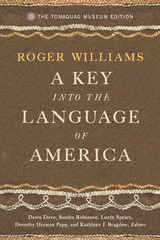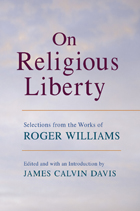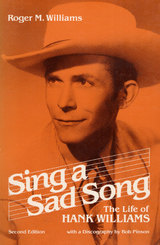
Roger Williams’s Key into the Language of America, first published in 1643, is one of the most important artifacts of early Indigenous American culture. In it, Williams recorded the day-to-day experience of the Narragansett people of Rhode Island in their own words, the first documentation of an American Indian language in English. Williams’s Key can be read at many levels because of its historical, literary, political, and religious significance. Its greatest value, though, is its intimate portrait of the Narragansett and their linguistic neighbors in the early years of European colonial settlement, before disease, dislocation, warfare—in particular, King Philip’s War—and colonial interference had diminished their population and power in the region. An extraordinary achievement, Williams’s Key gives us a contemporary account of Narragansett family life, of their sociability and skill in business, their dress, foodways, and the farming, fishing, and hunting that formed the basis of their sustenance practices.
This new Tomaquag Museum edition includes for the first time cultural commentary provided by the Narragansett Tribe as well as modern linguistic information provided by a leading authority in the study of American Indian languages.
The Tomaquag Museum, located in Exeter, Rhode Island, is an Indigenous nonprofit organization dedicated to sharing the culture, arts, and history of the Narragansett and other tribal communities of southern New England.

Banished from the Massachusetts Bay Colony for his refusal to conform to Puritan religious and social standards, Roger Williams established a haven in Rhode Island for those persecuted in the name of the religious establishment. He conducted a lifelong debate over religious freedom with distinguished figures of the seventeenth century, including Puritan minister John Cotton, Massachusetts governor John Endicott, and the English Parliament.
James Calvin Davis gathers together important selections from Williams’s public and private writings on religious liberty, illustrating how this renegade Puritan radically reinterpreted Christian moral theology and the events of his day in a powerful argument for freedom of conscience and the separation of church and state. For Williams, the enforcement of religious uniformity violated the basic values of Calvinist Christianity and presumed upon God’s authority to speak to the individual conscience. He argued that state coercion was rarely effective, often causing more harm to the church and strife to the social order than did religious pluralism.
This is the first collection of Williams’s writings in forty years reaching beyond his major work, The Bloody Tenent, to include other selections from his public and private writings. This carefully annotated book introduces Williams to a new generation of readers.

Banished from the Massachusetts Bay Colony for his refusal to conform to Puritan religious and social standards, Roger Williams established a haven in Rhode Island for those persecuted in the name of the religious establishment. He conducted a lifelong debate over religious freedom with distinguished figures of the seventeenth century, including Puritan minister John Cotton, Massachusetts governor John Endicott, and the English Parliament.
James Calvin Davis gathers together important selections from Williams’s public and private writings on religious liberty, illustrating how this renegade Puritan radically reinterpreted Christian moral theology and the events of his day in a powerful argument for freedom of conscience and the separation of church and state. For Williams, the enforcement of religious uniformity violated the basic values of Calvinist Christianity and presumed upon God’s authority to speak to the individual conscience. He argued that state coercion was rarely effective, often causing more harm to the church and strife to the social order than did religious pluralism.
This is the first collection of Williams’s writings in forty years reaching beyond his major work, The Bloody Tenent, to include other selections from his public and private writings. This carefully annotated book introduces Williams to a new generation of readers.

Sing a Sad Songs tells the story of Hank Williams's rise from impoverished Alabama roots, his coming of age during and after World War II, his meteoric climb to national acclaim and star status on the Grand Ole Opry, his star-crossed marriages and recurring health problems, the chronic bouts with alcoholism and the alienation it caused in those he loved and sang for, and finally his tragic death at twenty-nine and subsequent emergence as a folk hero.
In addition, the book includes an essential discography compiled by Bob Pinson of the Country Music Foundation.
READERS
Browse our collection.
PUBLISHERS
See BiblioVault's publisher services.
STUDENT SERVICES
Files for college accessibility offices.
UChicago Accessibility Resources
home | accessibility | search | about | contact us
BiblioVault ® 2001 - 2024
The University of Chicago Press









